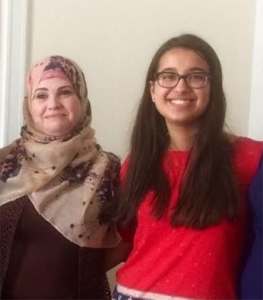The effect of personality on refugee settlement
 Refugees who are more willing to take risks, who tend to reciprocate friendliness, and who believe they are in control of their lives integrate into a new society faster, a new study has found.
Refugees who are more willing to take risks, who tend to reciprocate friendliness, and who believe they are in control of their lives integrate into a new society faster, a new study has found.
A study of refugees in Germany that looked at factors that contribute to successful integration found that refugees who are more willing than others to take risks, for example, find work faster and have more social contacts with local residents.
Those who are more strongly convinced that they are in control of their lives and who reciprocate the friendliness shown by other people find it easier to make inroads into society than others do, the study found.
It found they also have more friends and are more self-confident, more contented and healthier.
The researchers from the German Institute of Economic Research evaluated the data of more than 4,000 participants in the study who had already been living in Germany for an average of 18 months at the time the survey was carried out.
“Our study demonstrates for the first time that, in addition to socio-demographic factors, it is also individual personality traits which play a decisive role in any successful integration of refugees,” said psychologist and the study’s lead author Dr Elisabeth Hahn, of Saarland University.
She said the frequently traumatic experiences undergone while fleeing conflict and the unfamiliar circumstances of a new country place a heavy burden on refugees.
“But if people are convinced that they can influence their fate, they have a far greater scope for action than if they think they are at the mercy of their circumstances,” the researchers said.
“Also, a general tendency to take the occasional risk, and to reciprocate people’s friendliness, seem to be helpful in the difficult process of integration,” they said.
The study also confirms a series of findings arrived at in earlier studies on the integration of immigrants; that people who have been living in a new country for a longer period of time find it easier to integrate than others.
A better knowledge of German and a good level of education acquired in their home country also help decisively in making integration succeed, the researchers found.
Gender also plays a role with female refugees less frequently employed and with fewer social contacts, the researchers said.
“Religious affiliation of the participants—whether Islam or Christian—was not related to the extent to which refugees are integrated,” the researchers said.
“This contrasts with the prejudices commonly found in host societies. Refugees who wish to live in Germany permanently currently find support in various areas of life—for example, in acquiring language skills or in looking for work,” they said.
Based on their findings, the authors of the study called for refugees’ individual personality traits to be taken into account in integration programs.
“Help for refugees should also include supporting and encouraging the personal resources and social skills which these people bring with them -for example, the ability to make new contacts with other people,” Dr Hahn said.
The study was published recently in the journal ‘Collabra: Psychology’.
Laurie Nowell
AMES Australia Senior Journalist












